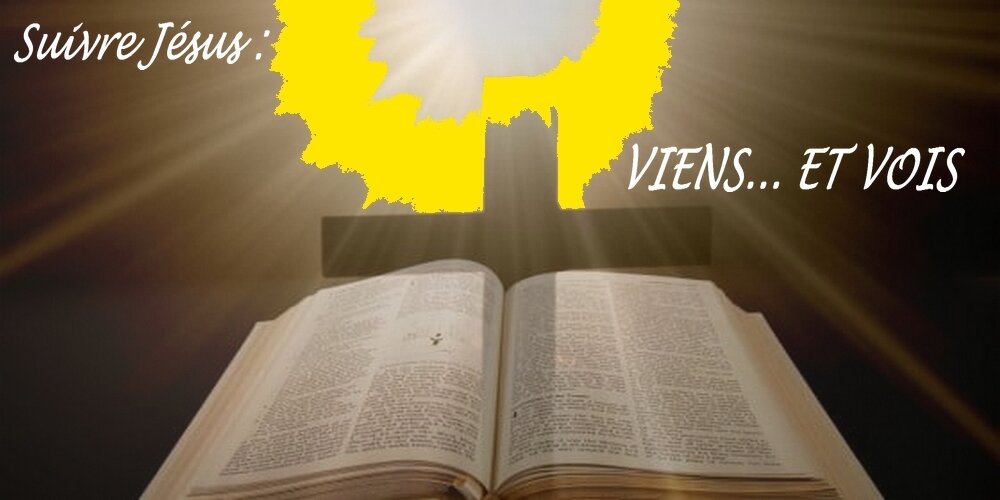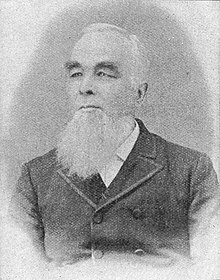Invoquer les promesses de Dieu - Wiliam J. C. White (Citation)
Nous ne prions jamais
avec autant de puissance
que lorsque nous invoquons
les promesses de Dieu.
(William J. C. White)

William Jefferson White was born at Ruckersville, Georgia on December 25, 1831 to Chaney and William White. His father was white and his mother had African-American and Native American ancestors. He could pass for white, but self-identified as black. His mother was a slave, but he never was. He was taught to read by his mother. At the age of seven he started working in a cotton factory, where he worked for three years. He also spent a short time working on a wagon travelling rural parts of the state selling the factory's goods. In June, 1842 he went to Augusta, Georgia where he lived with the family of Captain W. G. Nimms where he learned to write. He then took an apprenticeship as a carpenter for W. H. Goodrich, where he stayed for five years before moving on to cabinet making under C. A. Platt & Co. where he spent two years. He continued this work until 1867. During the American Civil War (1861-1865), the blockade shut out printing supplies to southern printers, and White learned to make printers' wooden furniture, which helped him in his later journalism career. He never formally attended college, but did take part in the courses at the Augusta Institute, which he helped found, and in 1889 was given an honorary Doctor of Divinity by the State University of Kentucky.
Career as an educator
During the early period of White's career, he began teaching. In 1853, he opened a secret night school at the home of Samuel Ketch. He started another school at the home of Deacon Anderson Hartwell in 1854, which remained open until the Hartwell family moved to Liberia. After that point, this school was taught on the premises of Judge W. T. Gould without Gould's knowledge. Later in 1854 he opened a third school at the home of Reverend Peter Johnson.
His secular educational career continued after the end of slavery. On January 12, 1867, White was appointed educational agent of the Freedmen's Bureau by Oliver O. Howard, and organized schools for black children in Georgia. He fought against illegal black curfews and helped register blacks to vote. He organized educational societies and worked to obtain land and build schools. White left the Bureau on January 1, 1869 and on May 1 that year was appointed assistant assessor of revenue by Edwin Belcher. He continued to work for the internal revenue service in different roles until January 1, 1880 when he resigned to give his full attention to his religious callings. Also in 1869, he was also chosen trustee of the newly established Atlanta University. White established the Augusta Institute in Springfield Baptist Church in 1867 and served as one of the trustees there as well. White was among those involved in the moving of the Augusta Institute to Atlanta and the change of name to the Atlanta baptist Seminary, and continued to serve on the board of trustees. He was a longtime supporter of Ware High School for blacks in Augusta and was deeply hurt when the Richmond County Board of Education closed the school in 1897 to reapportion money for white elementary education. He was also a co-founder and trustee at the Spelman Seminary which formed in 1882.
Ministry
White was baptized on October 7, 1855 at Springfield Baptist Church in Augusta, Georgia, on September 19, 1858 he was licensed to exhort, and on February 16, 1862 he was licensed to preach. He organized a Sabbath School on January 8, 1859, and he would serve as superintendent of the school for nine years. On April 1, 1866 he was ordained, and he began holding meetings on June 16, 1867 in what was known as McKinley's grove on a farm owned by Mary Boonyer McKinley and presided by Rev. George Barnes. On May 10, 1868, White and six others organized the Harmony Baptist Church on a lot next to McKinley's grove which they had bought from Mary McKinley. On the first Sunday of July, 1869, he officially became pastor of Harmony Baptist Church, a church whose congregation had grown in part out of the Sabbath schools he led. White also organized Watery Branch Baptist Church and Simonia Baptist Church elsewhere in Columbia County When the Missionary Baptist Convention of Georgia was formed in August 1870, he was elected treasurer, a position he held for fourteen years. He also served as missionary agent for the body.
White was involved in a number of other Baptist organizations. He served as treasurer of the Shiloh Association from its founding in 1870 until after 1892, and was co-founder and then president of the Colored Georgia Baptist Sunday School Convention for many years starting in 1872. He was a corresponding secretary of the Missionary baptist Convention and of the Sunday School Convention of Georgia, and chairman of the Baptist Centennial Committee of Georgia.
Sources:
William Jefferson White (December 25, 1831 - April 17, 1913) was a civil rights leader, minister, educator, and journalist in Augusta, Georgia. He was the founder of Harmony Baptist Church in Augusta in 1869 as well as other churches. He also was a co-founder of the Augusta Institute in 1867, which would become Morehouse College.
http://wikipedia.org
William Jefferson White est né à Ruckersville, en Géorgie, le 25 décembre 1831 de Chaney et William White. Son père était blanc et sa mère avait des ancêtres afro-américains et amérindiens. Il pourrait passer pour le blanc, mais s'est identifié comme noir. Sa mère était esclave, mais il ne l'a jamais été. Sa mère lui a appris à lire. À l'âge de sept ans, il a commencé à travailler dans une usine de coton, où il a travaillé pendant trois ans. Il a également passé un peu de temps à travailler sur un chariot voyageant dans les régions rurales de l'État pour vendre les produits de l'usine. En juin 1842, il se rend à Augusta, en Géorgie, où il vit avec la famille du capitaine W. G. Nimms où il apprend à écrire. Il a ensuite suivi un apprentissage de menuisier pour W. H. Goodrich, où il est resté cinq ans avant de passer à l'ébénisterie sous C. A. Platt & Co. où il a passé deux ans. Il a continué ce travail jusqu'en 1867. Pendant la guerre de Sécession (1861-1865), le blocus a bloqué les fournitures d'impression des imprimeurs du Sud, et White a appris à fabriquer des meubles en bois pour imprimantes, ce qui l'a aidé dans sa carrière de journaliste. Il n'a jamais officiellement fréquenté le collège, mais a pris part aux cours de l'Institut Augusta, qu'il a aidé à fonder et, en 1889, il a reçu un doctorat honorifique en théologie de l'Université d'État du Kentucky.
Carrière d'éducateur
Au début de la carrière de White, il a commencé à enseigner. En 1853, il ouvrit une école du soir secrète au domicile de Samuel Ketch. Il a commencé une autre école au domicile du diacre Anderson Hartwell en 1854, qui est restée ouverte jusqu'à ce que la famille Hartwell déménage au Libéria. Après ce point, cette école a été enseignée dans les locaux du juge W. T. Gould à l'insu de Gould. Plus tard en 1854, il ouvrit une troisième école au domicile du révérend Peter Johnson.
Sa carrière éducative laïque s'est poursuivie après la fin de l'esclavage. Le 12 janvier 1867, White est nommé agent éducatif du Freedmen's Bureau par Oliver O. Howard et organise des écoles pour les enfants noirs en Géorgie. Il a lutté contre les couvre-feux noirs illégaux et a aidé à enregistrer les noirs pour voter. Il a organisé des sociétés éducatives et a travaillé pour obtenir des terres et construire des écoles. White a quitté le Bureau le 1er janvier 1869 et le 1er mai de la même année a été nommé évaluateur adjoint des revenus par Edwin Belcher. Il a continué à travailler pour le service des revenus internes dans différents rôles jusqu'au 1er janvier 1880, date à laquelle il a démissionné pour accorder toute son attention à ses appels religieux. Toujours en 1869, il est également élu administrateur de la toute nouvelle université d'Atlanta
White a créé l'Institut Augusta à Springfield Baptist Church en 1867 et y a également été l'un des administrateurs. White était parmi ceux impliqués dans le déménagement de l'Institut Augusta à Atlanta et le changement de nom au séminaire baptiste d'Atlanta, et a continué à siéger au conseil d'administration. Il était un partisan de longue date de la Ware High School for Blacks à Augusta et a été profondément blessé lorsque le Richmond County Board of Education a fermé l'école en 1897 pour redistribuer l'argent pour l'éducation élémentaire blanche. [6] Il était également co-fondateur et administrateur du Spelman Seminary qui s'est formé en 1882.
Ministère
White a été baptisé le 7 octobre 1855 à Springfield Baptist Church à Augusta, Géorgie, le 19 septembre 1858, il a été autorisé à exhorter, et le 16 février 1862, il a été autorisé à prêcher. Il a organisé une école du sabbat le 8 janvier 1859 [1] et il a été directeur de l'école pendant neuf ans. Le 1er avril 1866, il a été ordonné et il a commencé à tenir des réunions le 16 juin 1867 dans ce qui était connu comme le bosquet McKinley dans une ferme appartenant à Mary Boonyer McKinley et présidée par le révérend George Barnes. Le 10 mai 1868, White et six autres organisèrent l'église baptiste Harmony sur un terrain à côté du bosquet de McKinley qu'ils avaient acheté à Mary McKinley. Le premier dimanche de juillet 1869, il devint officiellement pasteur de Harmony Baptist Church, une église dont la congrégation s'était développée en partie grâce aux écoles du sabbat qu'il dirigeait. White a également organisé Watery Branch Baptist Church et Simonia Baptist Church ailleurs dans le comté de Columbia. Lorsque la Missionary Baptist Convention of Georgia a été formée en août 1870, il a été élu trésorier, poste qu'il a occupé pendant quatorze ans. Il a également servi comme agent missionnaire pour le corps.
White était impliqué dans un certain nombre d'autres organisations baptistes. Il a été trésorier de l'Association Shiloh depuis sa fondation en 1870 jusqu'à après 1892 , et a été co-fondateur puis président de la Colored Georgia Baptist Sunday School Convention pendant de nombreuses années à partir de 1872. Il était secrétaire correspondant de la Convention baptiste missionnaire et de la Convention de l'école du dimanche de Géorgie, et président du Baptist Centennial Committee of Georgia.
Traduit de l'anglais


/image%2F1316033%2F20240323%2Fob_aa3f04_ichtus-126446580-o.jpg)




/https%3A%2F%2Fstorage.canalblog.com%2F98%2F68%2F1587510%2F124094832_o.jpg)
/https%3A%2F%2Fstorage.canalblog.com%2F84%2F15%2F1587510%2F124839295_o.jpg)
/https%3A%2F%2Fstorage.canalblog.com%2F13%2F88%2F1587510%2F125246059_o.jpg)
/https%3A%2F%2Fstorage.canalblog.com%2F34%2F51%2F1587510%2F125250040_o.jpg)